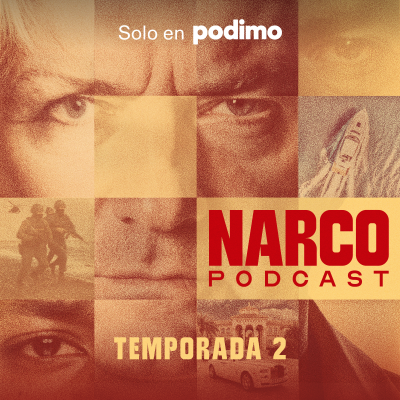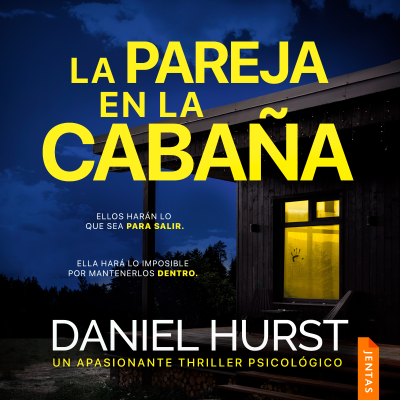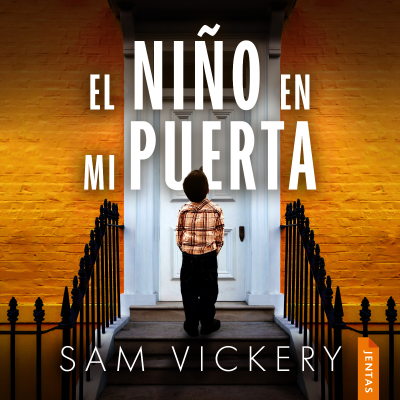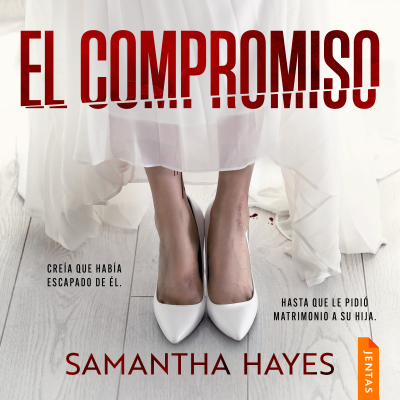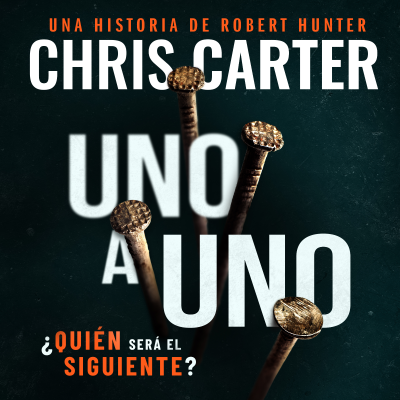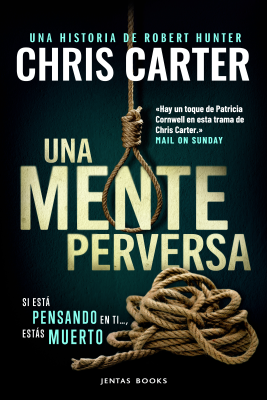
HISTORY This Week
inglés
Historias personales y conversaciones
Oferta limitada
2 meses por 1 €
Después 4,99 € / mesCancela cuando quieras.
- 20 horas de audiolibros / mes
- Podcasts solo en Podimo
- Podcast gratuitos
Acerca de HISTORY This Week
This week, something big happened. You might have never heard of it, but this moment changed the course of history. A HISTORY Channel original podcast, HISTORY This Week gives you insight into the people—both famous and unknown—whose decisions reshaped the world we live in today. Through interviews with experts and eyewitnesses, each episode will give you a new perspective on how history is written. Stay up-to-date at historythisweekpodcast.com and to get in touch, email us at historythisweek@history.com. HISTORY This Week is a production of Back Pocket Studios in partnership with the History Channel.
Todos los episodios
310 episodiosStalin Is Dead! | Сталин мертв!
March 5, 1953. The Premier of the Soviet Union, Joseph Stalin, is on his deathbed, and he’s turning blue. At the end of his life, Stalin is surrounded by his closest advisors, but these comrades aren’t hoping for his quick recovery. For days, they’ve been sneaking away from their vigil, plotting. The moment Stalin’s heart stops, they leap into action. What happens when a tyrant falls? And what role did the inner circle play in bringing an end to Stalin? Special thanks to our guest, Sheila Fitzpatrick, historian and author of The Death of Stalin [https://www.blackincbooks.com.au/books/death-stalin]. -- Get in touch: historythisweek@history.com [historythisweekpodcast@history.com] Follow on Instagram: @historythisweekpodcast [https://www.instagram.com/historythisweekpodcast/] Follow on Facebook: HISTORY This Week Podcast [https://www.facebook.com/profile.php?id=61579051723230] To stay updated: http://historythisweekpodcast.com [http://historythisweekpodcast.com] To learn more about listener data and our privacy practices visit: https://www.audacyinc.com/privacy-policy [https://www.audacyinc.com/privacy-policy] Learn more about your ad choices. Visit https://podcastchoices.com/adchoices [https://podcastchoices.com/adchoices]
Disneyland on a Deadline
March 1, 1951. Two Texas horse trainers sit down to lunch with Walt Disney. They assume he wants to use their animals in a movie. Instead, Walt leans in and tells them about something that doesn’t exist yet. Not a carnival. Not an amusement park. Something movie-like in the real world. And if he’s going to build it, he’ll need horses. At that moment, Disneyland is just an idea in Walt’s head. But within a few years, he’ll clear 160 acres of orange groves in Anaheim and attempt to build that dream in barely twelve months. The budget will balloon. The rivers will drain into the soil. The rides will be welded together overnight. And Walt will stake his company — and his personal fortune — on opening the gates on time. Why was Disneyland such a gamble? And how did Walt essentially invent a whole new form of live entertainment? Special thanks to our guests: Leslie Iwerks, director of Disneyland Handcrafted [https://disneyparksblog.com/disney-experiences/how-to-watch-the-debut-of-disneyland-handcrafted/]; Mark Catalina, producer of Disneyland Handcrafted [https://disneyparksblog.com/disney-experiences/how-to-watch-the-debut-of-disneyland-handcrafted/]; Becky Cline, director of the Walt Disney Archives; and Tom Fitzgerald, chief storytelling executive and senior creative executive at Walt Disney Imagineering. Get in touch: historythisweek@history.com [historythisweekpodcast@history.com] Follow on Instagram: @historythisweekpodcast [https://www.instagram.com/historythisweekpodcast/] Follow on Facebook: HISTORY This Week Podcast [https://www.facebook.com/profile.php?id=61579051723230] To stay updated: http://historythisweekpodcast.com [http://historythisweekpodcast.com] To learn more about listener data and our privacy practices visit: https://www.audacyinc.com/privacy-policy [https://www.audacyinc.com/privacy-policy] Learn more about your ad choices. Visit https://podcastchoices.com/adchoices [https://podcastchoices.com/adchoices]
How To Dig a Train Tunnel Under the Hudson River
February 14, 1905. A stick of dynamite detonates under the Hudson River — and the ground above swallows a locomotive whole. It's the latest setback in an audacious plan to tunnel beneath the river and bring trains into Manhattan. The Pennsylvania Railroad is the largest corporation in the world, but the goopy riverbed keeps fighting back. How did they finally make it across? And why are these 115-year-old tunnels still the most critical infrastructure in America today? Special thanks to our guests: Polly Desjarlais, content and research manager at the New York Transit Museum [https://www.nytransitmuseum.org/]; Jill Jonnes, author of Conquering Gotham: A Gilded Age Epic: The Construction of Penn Station and Its Tunnels [https://www.amazon.com/Conquering-Gotham-Construction-Station-ItsTunnels/dp/0670031585]; and Andy Sparberg, former LIRR manager, transit historian, and author of From a Nickel to a Token: The Journey from Board of Transportation to MTA [https://www.amazon.com/Nickel-Token-Journey-Board-Transportation/dp/0823271803]. -- Get in touch: historythisweek@history.com [historythisweekpodcast@history.com] Follow on Instagram: @historythisweekpodcast [https://www.instagram.com/historythisweekpodcast/] Follow on Facebook: HISTORY This Week Podcast [https://www.facebook.com/profile.php?id=61579051723230] To stay updated: http://historythisweekpodcast.com [http://historythisweekpodcast.com] To learn more about listener data and our privacy practices visit: https://www.audacyinc.com/privacy-policy [https://www.audacyinc.com/privacy-policy] Learn more about your ad choices. Visit https://podcastchoices.com/adchoices [https://podcastchoices.com/adchoices]
Trailer: HTW Season Premiere This Monday!
HISTORY This Week will return with new episodes this Monday, February 16th, with a story about the most vital train tunnels in the United States. The North River Tunnels—their formal name—connect New Jersey to Penn Station in New York City, carrying 200,000 passengers every day. These tunnels underneath the Hudson are now over 115 years old, and are in desperate need of repair. The tunnel rehabilitation effort will be the largest infrastructure project in the country. It’s just getting underway, but now, the funding has been tied up in a political battle between the Trump Administration, Amtrak, and the states of New York and New Jersey. The stakes could not be higher. If these tunnels were to fail, up to 20% of U.S. GDP could be at risk. In this episode, we will unpack just how difficult it was to dig these tunnels in the first place. One man, Pennsylvania Railroad President Alexander Cassatt, was determined to build this critical rail connection, ultimately linking the entire Eastern Seaboard via train for the first time, using engineering methods that had never been tried before. If he failed, his corporation—the largest in the world at the time—would have been doomed. 🎧 Stay tuned this Monday, February 16th, for the full story. To learn more about listener data and our privacy practices visit: https://www.audacyinc.com/privacy-policy [https://www.audacyinc.com/privacy-policy] Learn more about your ad choices. Visit https://podcastchoices.com/adchoices [https://podcastchoices.com/adchoices]
Shut Out of the Majors, They Created Their Own
LINK TO OUR LIVE SHOW! [https://www.tenement.org/events/history-this-week-live-podcast-with-tyler-anbinder/] (or visit historythisweekpodcast.com [historythisweekpodcast.com]) Feb 13, 1920. For over thirty years, Black baseball players have been locked out of the major leagues. So on this day in Kansas City, Rube Foster, a former pitcher and now a team owner, is trying to make his own league just for Black players. He has gathered owners of other Black baseball teams, who currently play each other in one-off matchups or face independent teams in random games around the country. But Foster wants them to get organized, and soon, the Negro National League would be born. But up to this point, how did Black baseball survive after segregation became the unofficial policy of the major leagues? And how did Black players, owners, and managers join together to create something that no baseball fan could ignore? Special thanks to our guests, Phil S. Dixon [https://www.nlbalive.com/], author and Negro Leagues researcher; and Bob Kendrick [https://www.nlbm.com/], President of the Negro Leagues Baseball Museum in Kansas City, MO. ** This episode originally aired Feb 7, 2022. Get in touch: historythisweek@history.com [historythisweekpodcast@history.com] Follow on Instagram: @historythisweekpodcast [https://www.instagram.com/historythisweekpodcast/] Follow on Facebook: HISTORY This Week Podcast [https://www.facebook.com/profile.php?id=61579051723230] To stay updated: http://historythisweekpodcast.com [http://historythisweekpodcast.com] To learn more about listener data and our privacy practices visit: https://www.audacyinc.com/privacy-policy [https://www.audacyinc.com/privacy-policy] Learn more about your ad choices. Visit https://podcastchoices.com/adchoices [https://podcastchoices.com/adchoices]
Elige tu suscripción
Oferta limitada
Premium
20 horas de audiolibros
Podcasts solo en Podimo
Podcast gratuitos
Cancela cuando quieras
2 meses por 1 €
Después 4,99 € / mes
Premium Plus
100 horas de audiolibros
Podcasts solo en Podimo
Podcast gratuitos
Cancela cuando quieras
Disfruta 30 días gratis
Después 9,99 € / mes
2 meses por 1 €. Después 4,99 € / mes. Cancela cuando quieras.





